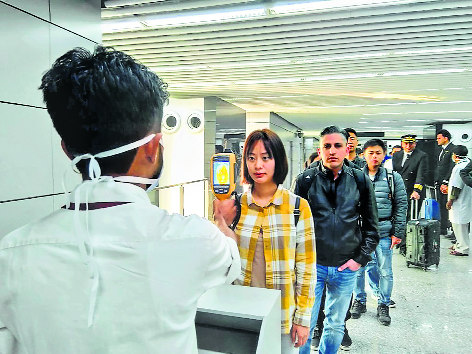
Sandeep Dikshit in New Delhi
The situation perhaps might not have been so bad had World Health Organisation chief Tedros Ghebreyesus not spoken against measures that ‘unnecessarily interfere with international travel and trade’ soon after he met Chinese President Xi Jinping in Beijing on January 28. It was after more than a month of this wide-off-the-mark statement by the WHO chief that countries, including India, began applying sweeping restrictions on overseas travel.
Read also:
- Doaba coronavirus diaries — Tough if in Italy, or from there
- NRIs visiting Punjab stay put, as do those planning to come
- Tourism-travel sector faces most challenging crisis
- Olympics training off-track
- Cinema catches bug, online release next?
China, too, played a role in delaying a response by other countries by criticising those that had become aware of the epidemic’s devastating impact and had started denying entry to people who had visited Hubei province. In fact, days before India clamped down on travel to China, Beijing lauded India for acting with maturity — in other words, praise for not yet imposing travel restrictions.
India marched to its tune and effectively replied to the jibe by British economist Jim O’Neill (inventor of the term BRICS) that he was thankful the coronavirus epidemic did not start from “somewhere like India”. It shrugged Beijing’s backhanded compliment and imposed a ban on Chinese tourist visas and flights, a move that may have led to delay in clearances for two special Indian flights to Wuhan, the epicentre of the epidemic. Though these are still early days and the impact of the coronavirus is yet to completely unfold, India has less than 100 confirmed cases and two deaths despite sharing a border of 3,488 km with China as against 800 cases and 11 deaths in the UK, which for a longer time entertained Beijing’s call to keep travel unrestricted.
Once India disconnected communication with countries of concern such as Italy, Iran and China, it became inevitable that countrymen stranded in those climes will have to be extricated. Indian diplomats burnt the midnight oil on many an occasion as they haggled with the Chinese and then the Iranians, which enabled six evacuation sorties conducted so far with more in the offing. In the process, the Indian Air Force earned the distinction of evacuating the most number of foreign nationals from Wuhan, besides five foreigners, during its extrication of Indians from Japan.
The MEA is, however, going beyond its bread and butter issues to untested domains. India’s testing facilities, which are both cost-effective and rugged, are now in great demand. Iran, Afghanistan and Timor-Leste are among those that have sought Indian help in setting up testing facilities. In the Maldives, a multi-disciplinary medical team and a special medical relief team is assisting the local health authorities. In Iran, a team of six Indian scientists has set up a makeshift lab and testing facility to test 6,000 stranded Indians refused access to local testing facilities because of the high workload. In the coming days, three more sorties to Iran will airlift citizens. A team of four doctors is also in Rome to collect samples of Indians there for onward testing in India.
India might not have been as well prepared or unable to assist its neighbours had it not been the policies followed by successive governments that have led to a countrywide — creaking but surprisingly responsive — public healthcare system, the absence of which the US is now feeling despite having the world’s best complement of doctors and diagnostics. An extensive drug price control system girded by regulatory institutions has ensured the cheapest medicine prices in the world.
Today, the early establishment of points of entry surveillance, the universal screening of passengers — 14 lakh at last count — sufficient laboratory and quarantine facilities have helped stem the epidemic in the country. And the Indian diplomacy, well aware of the perils of pandemics, has been at hand to lend support to the nation’s effort to keep an epidemic at bay.
As on March 14, India has evacuated more than 1,000 persons, including foreign nationals.
Join Whatsapp Channel of The Tribune for latest updates.



























